Adventurousness, if not always ambition, tends to ossify with age. The grass on the other side grows yellow, and what’s familiar becomes more than memories — it turns into an ideal for the future. But when all you’ve known is exploration, the most comfortable thing might just be to keep on moving forward. That’s how things seem to be with the revered D.C.-area bassist Michael Bowie, who turned 50 last year, and who recently formed the exciting band Sine Qua Non. The five-piece applies specific lessons from Spanish classical guitar music to an unorthodox jazz combo setting — notably, one without a guitarist.
This month, Sine Qua Non is in residence at Bohemian Caverns, where it performs every Tuesday. (There are two more shows before the month runs out.) It’s well worth the trip to U Street. The group’s repertoire is diffuse, ranging from the bassist’s originals to Sting songs to compositions by the late, great jazz singer Abbey Lincoln — in whose band Bowie played. And for all the band’s cerebral motivations, Sine Qua Non packs a punch. With Lyle Link on saxophone and flute, Victor Provost on steel pan, Mark Prince on drums and Sam Turner on percussion, the quintet plays games with interlaced rhythms and harmonic movement that are fun to try to follow, or simply succumb to.
Bowie and I caught up via email, and he told me a bit about how the idea for the band came together and what he hopes to accomplish with it.
CB: I know Abbey Lincoln was very special, as a person, a poet and a performer. You pay tribute to her in Sine Qua Non with a version of “Throw It Away.” What did you learn from her, and how do you hope to channel your memories of her through that rendition?
Michael Bowie: I chose the time signature of 7/8 [for the rendition] as she and I often discussed her love for music from around the world. The other [element drawn from her] was the solo approach; she loved when musicians soloed at the same time, it creates a cacophony of sound and emotion that reaches lofty spiritual heights – just like worshipers in church.
CB: You’ve also worked and apprenticed with a number of other great vocal acts – Betty Carter, Sarah Vaughan, Manhattan Transfer. What did you learn about playing the bass, specifically, from playing behind singers?
MB: It taught me to control the center. Clear harmonic direction and a steady beat are crucial for singers — which is the definition of our role as bassist, whomever we play with. James Moody enjoyed it as much as any singer I ever worked with.
CB: Talk about the idea behind Sine Qua Non: You’re bringing your love for classical music – particularly Spanish guitar – to bear on jazz, but you’re not even using a guitarist, and most of the music is improvised. Go figure.
MB: Kenny Dorham frequently sat in with classical orchestras, and from that experience you can hear that his scope was wide! Ray Brown told me to study classical. My friend Anthony Jackson reads and studies classical scores for breakfast. The great composers of this music give us so much variance in harmonic movement that it makes my head spin. The melodies in classical guitar music, for example, touch me in a way that most other music (especially today) can’t. As far as instrumentation goes, capturing the sonic texture in the music is more important for me than replicating it exactly. Studying its voices, resolutions, etc., is what motivates my compostions.
CB: “Sine qua non” means something that’s indispensable. For you, in your life, what things are those?
MB: Great question! Most basic for me is my love of family, god, and music. The band was named this because the music represents all people, and cultures. We are a world music band who believes that people and their culture are of utmost value, and therefore indispensable. We are all better off embracing this fact to create a better life for us all.
CB: It’s not often enough, in my opinion, that you get the extra dimension of an African or Afro-Cuban percussionist in a jazz combo. Why do you value that addition to your band?
MB: The central link in all music is rhythm. Name one music without someone striking something. It came before everything else, so we’d better have the “essential element” present to make its statement. Wouldn’t you agree? ![]()
—
Michael Bowie performs with Sine Qua Non this Tuesday and the following Tuesday, both as part of his month-long residency at Bohemian Caverns. Both shows have sets at 7:30 and 9:30, and admission is $10. Find information on this week’s show here, and on next week’s show here.

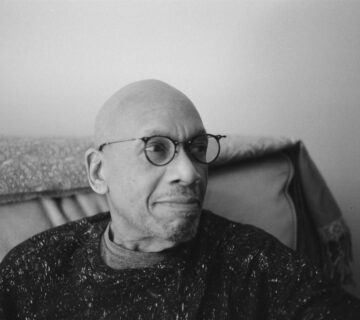
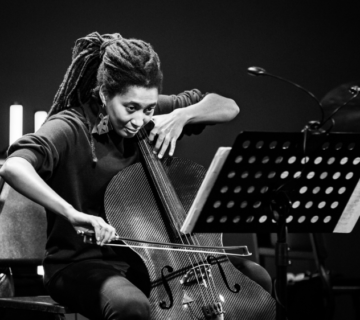
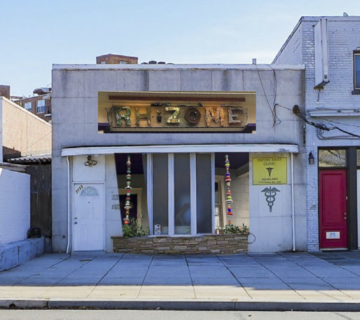
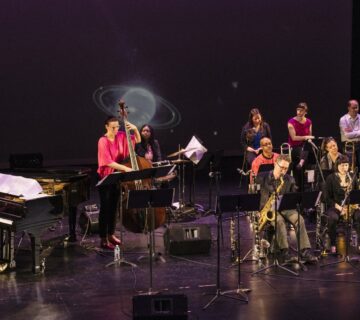
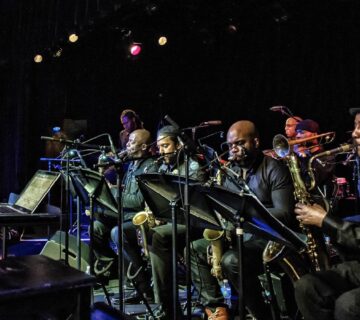
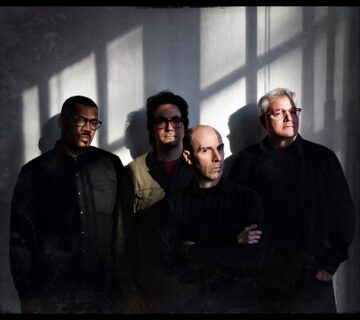
[…] also a seriously impressive composer, which you probably didn’t know until the 2012 launch of Sine Qua Non. It’s an unorthodox combo that now serves as a sandbox for his wide-ranging […]